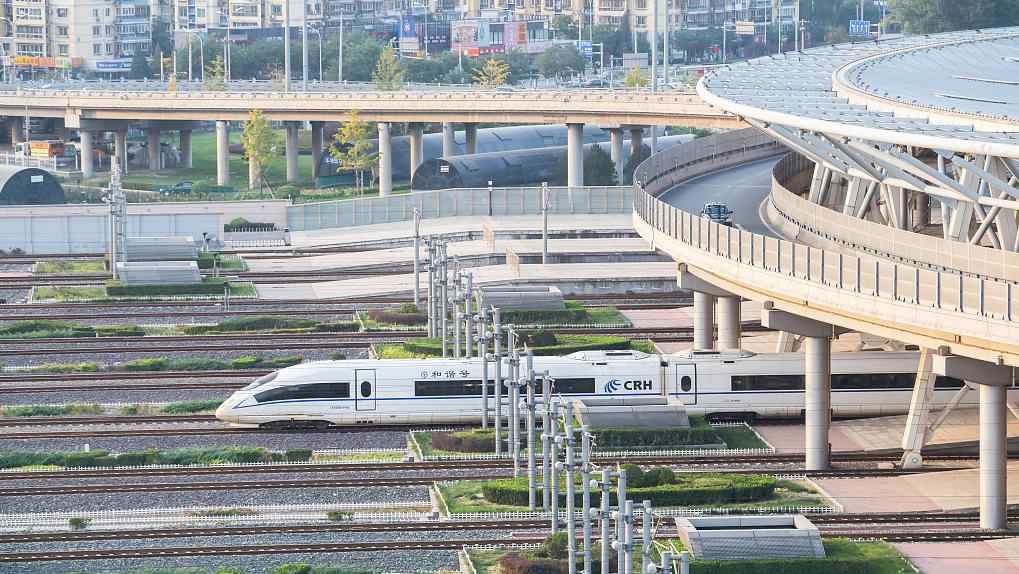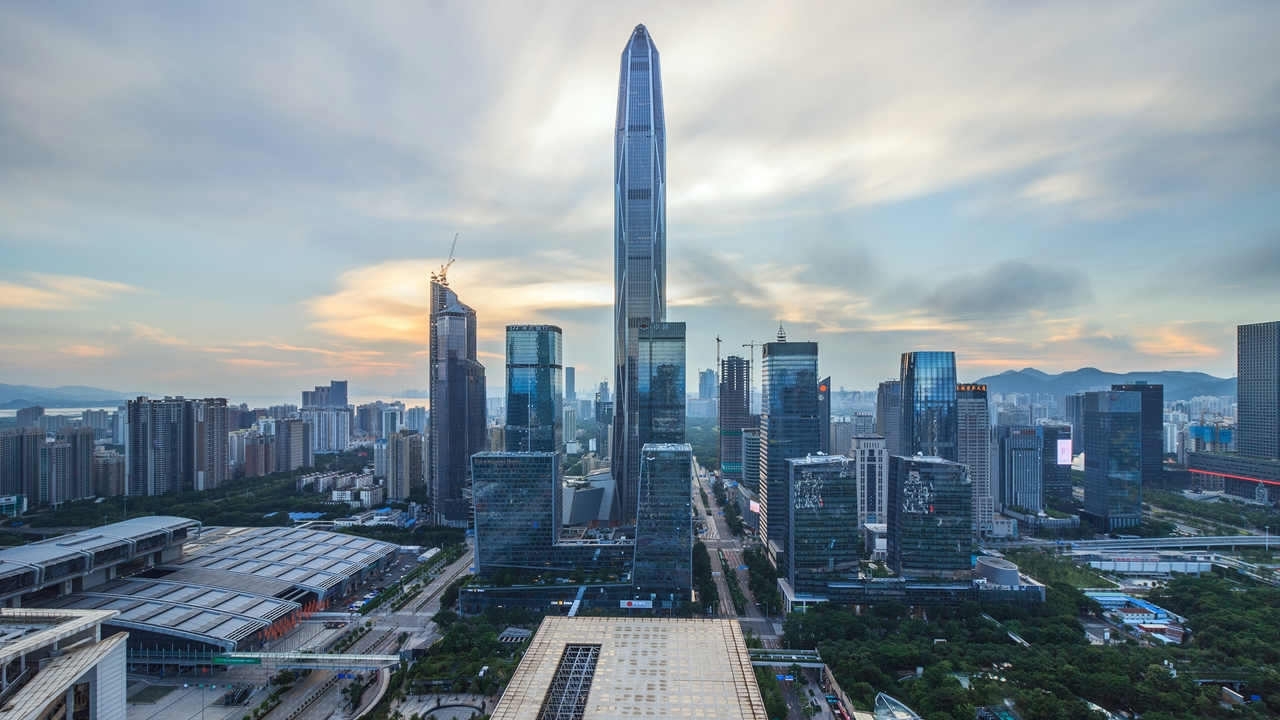At 12:35 a.m., October 18, the report delivered by Xi Jinping, General Secretary of the CPC Central Committee, ended to the sound of warm applause. As journalists calculated, this three-and-a-half-hour speech was “interrupted” 71 times by applause from the audience; 2,287 party delegates and more than 3,000 Chinese and international journalists.
Why were there so many “interruptions?” A possible answer is that there are a number of new concepts, new theories or new approaches offering new perspectives to understand the changing China, or some key points have conveyed the aspirations of the Chinese people represented by the delegates.
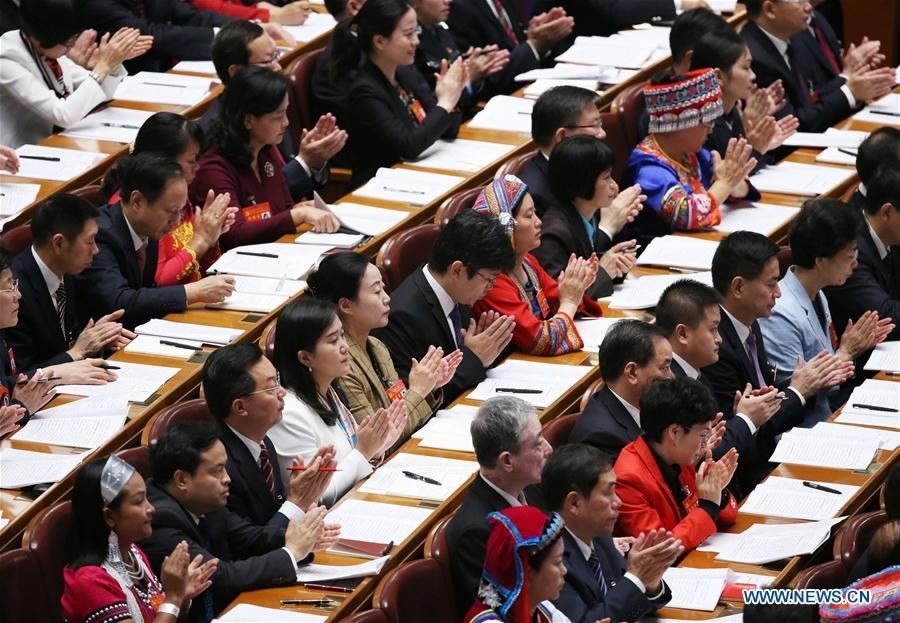
Delegates attend the 19th National Congress of the Communist Party of China (CPC) at the Great Hall of the People in Beijing, capital of China, on October 18, 2017. The CPC opened the 19th National Congress on Wednesday morning. /Xinhua Photo
Delegates attend the 19th National Congress of the Communist Party of China (CPC) at the Great Hall of the People in Beijing, capital of China, on October 18, 2017. The CPC opened the 19th National Congress on Wednesday morning. /Xinhua Photo
The most noticeable concept is the “new era,” which has been defined as a link between the past and the future, and repeated 36 times during the speech. This “new era” as a “new historic juncture in China’s development” is the latest achievement of the Chinese people’s endeavors during the past three quarters of a century which, chronologically, saw them stand up in 1949, grow rich from 1979, and now become strong in 2017.
At this very moment, the Party and China, with unprecedented confidence about their institution, theory, path and culture, are standing on the threshold and embracing the brilliant prospects of rejuvenation.
However, General Secretary Xi Jinping is also aware that matching the great rejuvenation can never be plain sailing. He cited the ancient maxim to warn that “every Party member must fully appreciate the long-term, complex and onerous nature of this great struggle; we must be ready to fight, build our ability and keep striving to secure new victories in this great struggle.”
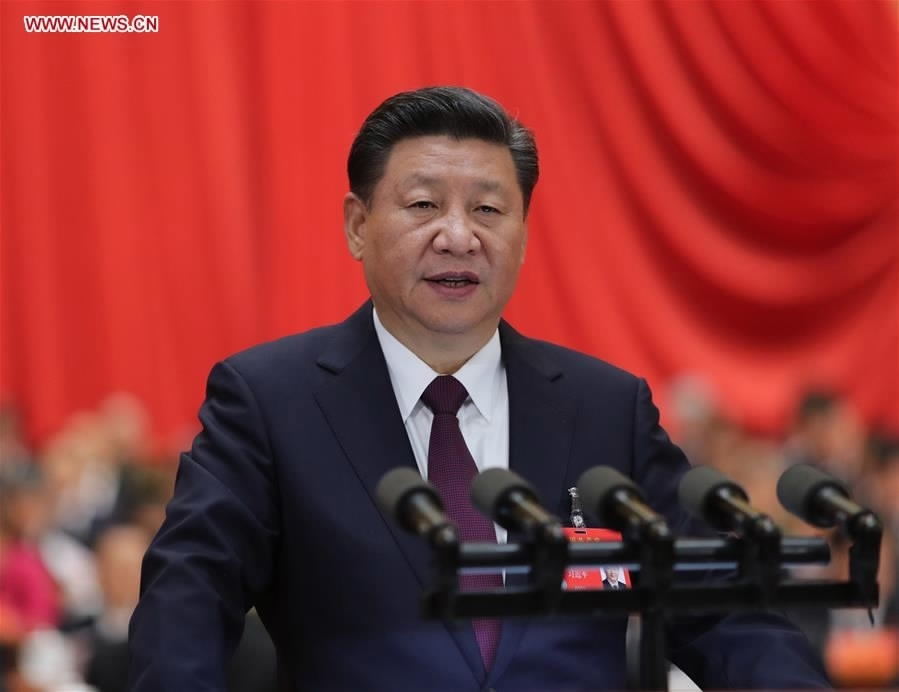
Xi Jinping delivers a work report to the 19th National Congress of the Communist Party of China on behalf of the 18th Central Committee of the CPC at the Great Hall of the People in Beijing, capital of China, on October 18, 2017. The CPC opened the 19th National Congress Wednesday morning. /Xinhua Photo
Xi Jinping delivers a work report to the 19th National Congress of the Communist Party of China on behalf of the 18th Central Committee of the CPC at the Great Hall of the People in Beijing, capital of China, on October 18, 2017. The CPC opened the 19th National Congress Wednesday morning. /Xinhua Photo
So, what is the toughest problem in the new era? “The principal contradiction facing Chinese society in the new era is between unbalanced and inadequate development and the people’s ever-growing needs for a better life.”
This new expression changes the old orthodoxy of China’s “principal contradiction” dramatically, and hence drew wide attention. International observers widely believe that the Party has replaced the outdated phrase “low productivity” and clearly realized that an increasingly prosperous population is aspiring to much more than just material and cultural needs.
What do Chinese people want for a better life? “The people’s demands for democracy, rule of law, fairness and justice, security and a better environment are increasing,” Xi gave a clear answer.
The cause of unbalanced and inadequate development seems to suggest that now the Party is paying much more attention to the distributive justice of social wealth and national resources.
Let’s draw an analogy to make it clear. Previously, China paid all its attention to development and tried to make the cake as large as possible. However, now the Party realizes that although China’s overall productive forces have significantly improved and even its production capacity begins to lead the world in many areas, its development is still unbalanced and inadequate. This is the main constraining factor in meeting the people’s increasing needs for a better life. In other words, China’s cake is quite large, but the ways of sharing it have yet to be improved.
The unbalanced and inadequate development are embodied in various areas, as General Secretary Xi Jinping pointed out in detail. There are still large disparities in development between rural and urban areas, between regions and in income distribution. And the Chinese people are still facing many difficulties in employment, education, healthcare, housing and elderly care.
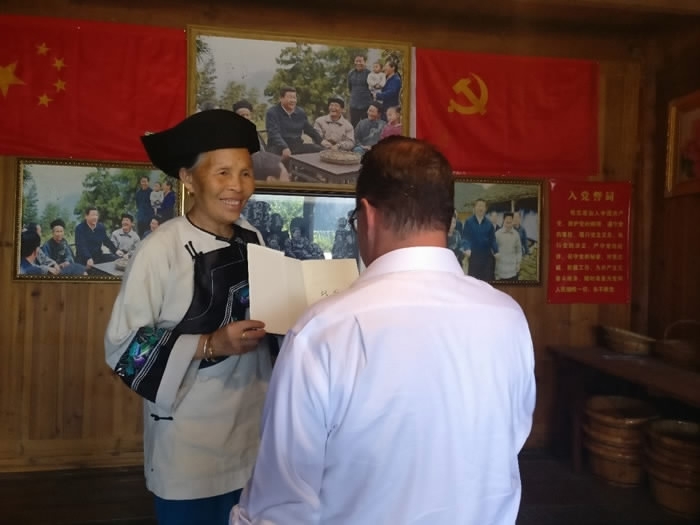
Shibadong villager Shi Bashan (L) still remembers when Chinese President Xi Jinping stopped by her home and shook her hands in 2013. /CGTN Photo by Peter Stolz
Shibadong villager Shi Bashan (L) still remembers when Chinese President Xi Jinping stopped by her home and shook her hands in 2013. /CGTN Photo by Peter Stolz
During the past five years, the Party has made every effort to improve these acute problems. For example, the great project of targeted poverty alleviation proposed by Xi Jinping has obtained obvious results in a number of inner provinces, such as Jiangxi, Guizhou, Sichuan and Gansu.
Thanks to high-speed trains and highway system construction, now the increasingly prosperous trans-provincial economic and personal exchange is changing the face of mountain villages. For instance, Wuyuan, the hometown of green Chinese tea but far away from the rich coastal region, has become a new tourist’s Shangri-La in southeast China, attracting tens of thousands of visitors every year to enjoy its fresh air and unique local food, customs and culture. Wuyuan is not alone -- there are more and more once remote towns and villages sharing the great achievements of China’s rejuvenation and hence become famous and flourishing.
To conclude, this report should not be regarded as a detailed blueprint, but a fundamental guideline. Because it only points out the toughest nut and principal contradictions in the new era, rather than provide a business plan.
The leader of such a large country can never work like the CEO of a company. Foreign observers and commentators often fail to distinguish the basic differences between these two roles, partially due to their lack of knowledge of Chinese philosophy. General Secretary Xi Jinping often cited Lao Tzu’s words, “Governing a large country is just like cooking a delicate fish.” This is the art of the CPC’s strong leadership, which is always ready to resolve new principal contradictions in the new era.
(Wang Peng is a research fellow at the Charhar Institute and China Institute of Fudan University, Shanghai. His areas of research include CPC building, Chinese foreign policy and Asia-Pacific international security. His research interests now focus on comprehensive strategic interactions between China and its neighbors, as well as the influence of the Belt and Road Initiative. The article reflects the author’s opinion, and not necessarily the views of CGTN.)

